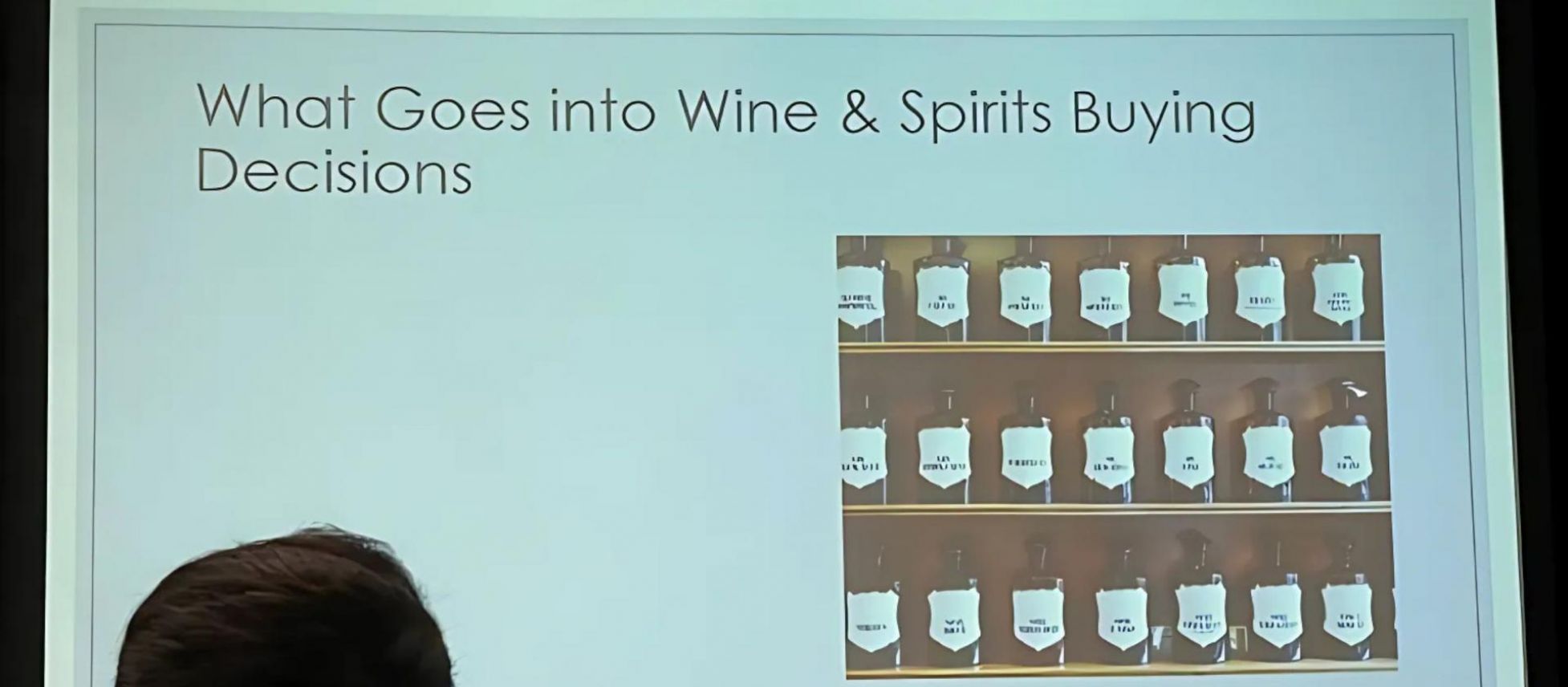Blog
Insights
What goes into the retailer’s wine and spirits private label program buying decision?

Key Factors Influencing Retailers' Private Label Wine & Spirits Buying Decisions
When retailers develop a private-label wine and spirits program, their buying decisions are influenced by multiple factors to ensure profitability, quality, and consumer appeal. Here’s a breakdown of the key considerations:
1. Market Demand & Consumer Preferences
- Category Trends: Retailers analyze consumer trends, such as the rising demand for premium, organic, or sustainable wines and spirits.
- Price Sensitivity: They determine the right price points based on customer demographics and competitive benchmarks.
- Flavor & Style Preferences: Understanding whether consumers favor bold Napa Cabernets, smooth French brandies, or craft-style gins influences product selection.
2. Supplier Selection & Sourcing Strategy
- Bulk vs. Contract Manufacturing: Retailers decide whether to source bulk wine/spirits and bottles under their label or partner with an established distillery or winery.
- Geographical Sourcing: Provenance matters—whether it’s Italian Prosecco, Scottish Whisky, or California Chardonnay, authenticity can impact brand perception.
- Producer Reputation & Capabilities: Retailers prefer suppliers with strong track records, certifications, and the ability to scale production if demand grows.
3. Quality & Consistency
- Tasting & Evaluation: Retail buyers conduct extensive tastings and quality checks to ensure private label products match or exceed national brand benchmarks.
- Aging & Maturation Considerations: If launching a private label whiskey or aged wine, they must evaluate barrel aging, blending options, and consistency over time.
- Regulatory Compliance: Adherence to TTB (Alcohol and Tobacco Tax and Trade Bureau) regulations and state laws is essential for legal labeling and marketing.
4. Branding & Packaging Design
- Labeling & Bottle Design: Retailers invest in premium branding, often using unique bottle shapes, custom labeling, and innovative packaging to differentiate their products.
- Storytelling & Positioning: A strong narrative—whether focused on sustainability, a family-owned vineyard, or small-batch craftsmanship—helps drive sales.
- Shelf Appeal & Private Label Tiers: Some retailers develop multi-tiered private label programs, offering budget-friendly, mid-range, and premium selections.
5. Pricing & Profitability Strategy
- Retail Margins: Private-label wines and spirits offer higher margins than national brands, but retailers must balance price competitiveness with perceived value.
- Volume vs. Exclusivity: Some stores focus on high-volume sales with mass-market appeal, while others create limited-edition or exclusive high-end private labels.
- Discounting & Promotions: Consideration of in-store promotions, discounts, and club member pricing can impact purchasing decisions.
[[relatedPurchasesItems-62]]
6. Distribution & Supply Chain Logistics
- Import & Compliance Requirements: If sourcing internationally, retailers must navigate import duties, label approvals, and distributor partnerships.
- Inventory & Supply Management: Ensuring a steady supply without overstocking or running out of high-demand products is crucial.
- Retailer-Owned vs. Third-Party Warehousing: Some retailers handle distribution in-house, while others work with fulfillment partners.
7. Marketing & Sales Support
- Staff Training & Education: Sales teams and sommeliers must be trained to effectively sell and recommend private label selections.
- Digital & In-Store Promotions: Many retailers use QR codes, in-store tastings, or social media campaigns to boost awareness and sales.
- Food & Beverage Pairings: Strategic recommendations for food pairings or cocktail recipes can increase consumer engagement.
8. Sustainability & Ethical Considerations
- Eco-Friendly Packaging: Lightweight glass, recyclable materials, and alternative packaging (e.g., cans, paper bottles) are growing in importance.
- Sustainable Sourcing: Organic, biodynamic, and sustainably farmed wines and spirits appeal to environmentally conscious consumers.
- Fair Trade & Ethical Production: Some retailers emphasize fair trade spirits, such as ethically sourced mezcal or rum.
Why Private Label Programs Matter for Retailers
- Higher Profit Margins: Compared to third-party brands, private-label wines and spirits offer better control over pricing and profitability.
- Stronger Brand Loyalty: Consumers who love a retailer’s private-label spirits or wines are more likely to return for repeat purchases.
- Market Differentiation: Offering exclusive or unique products helps retailers stand out from competitors.
Retailers who attend the International Bulk Wine & Spirits Show (IBWSS) gain direct access to bulk suppliers, contract distillers, and expert advisors to refine their private label strategy. If you're in the industry, IBWSS is the best place to explore new sourcing opportunities and make valuable connections!
Here are a couple of IBWSS Videos that will help you on this topic:
Also Read:
Private Label Spirits: A Growing Category in the USA
Top Retailers Outline Buying Programs for Private Label and Branded Wines
Here's How Design and Sustainability are Shaping the Future of Drink Sales
If you're a bulk wine or bulk spirits supplier, contract bottler, or private label producer aiming to connect with serious trade buyers, IBWSS San Francisco is the event you can't afford to miss. Get a quotation or Book a exhibitor table.

